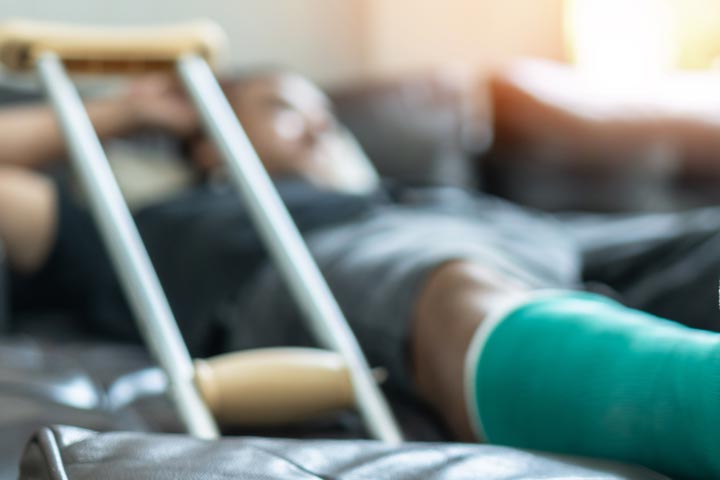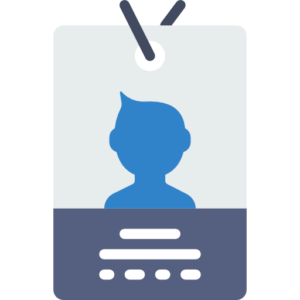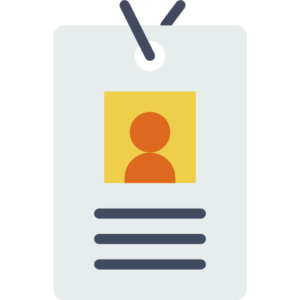
Accident and Sickness Insurance for Self Employed
Black Lion - Part of Movo H & L

Compare The UK's Top Insurers
Reducing the risk of Self Employment
Accident & Sickness Insurance is a highly effective yet under-utilised tool which self-employed professionals can use to help protect their income against the unwanted scenario whereby their health prevents them from being able to earn an income.
Whilst self-employment can offer some great freedoms and attractive opportunities, it arguably comes with greater exposure to risk. By default, the lack of any employee benefits or statutory sick pay is something that the UK’s 4 million self-employed workers would all like to offset.
The good news is that a number of insurers offer specific accident and sickness policies which can be tailored to meet the needs and budgets of UK’s diverse self-employed workforce.
Compare Top UK Insurers
What is self-employed sickness insurance?
A type of insurance policy which is designed to provide financial assistance to self-employed individuals in the event that they are unable to work as a result of an accident, injury or illness.
When a new policy is first set up, the policyholder choses a percentage of their pre-tax earnings to insure which is generally between 50% – 70%. Should the policy holder then make a valid claim then the insurer will typically pay a monthly benefit until either the policyholder can return to work, or, the benefit period (anything from 12 months up until retirement age) comes to an end.
These policies are very similar to general Accident & Sickness policies but tailored to better meet the needs of self-employed professionals, contractors and company directors. Importantly, when considering the level of annual earning that can be protected, dividend payments can be included. This is often an important point of difference for company directors who may receive a significant portion of their earnings through dividends.
Why accident and sickness insurance is so important for the self-employed?
In the event of an accident or illness, self-employed individuals often find themselves in a far less favourable position than if they were pursuing their occupation as an employee.
Unless the necessary protection is in place, a lack of employee benefits equivalent to enhanced sick pay can mean that the inability to work quickly leads to financial difficulties. A sudden drop or the complete halt of any income can mean that mortgage payments, utility bills, and the general cost of living can quickly become overwhelming. To make matters worse, there’s still likely to be a business to run and clients to look after.
With Statutory Sick Pay (SSP) not available to the self-employed, for many people, any available support from the UK benefits system is likely to fall short of a bare minimum income.
This is where self-employed accident and sickness insurance can prove to be essential. Providing financial security and allowing individuals to focus on their recovery without the added stress of financial pain. Even for those with those with a substantial financial buffer, this type of policy can help ensure any hard-earned savings remain available for their intended use.
What does it cover?
Generally, the terms of an accident and sickness policy are quite broad and are likely to cover any accident or illness which prevents the policyholder from being able to work. The definition of what constitutes a valid claim is likely to be more focused on whether the illness or injury is preventing the insured party from being able to work as opposed to a specific diagnosis.
What doesn’t accident and sickness insurance cover?
If the issue preventing the policyholder from being able to work is due to a pre-existing medical condition, then, in general, it is unlikely to be covered although this will depend on how the policy is underwritten and the specific situation.
Policies will often exclude stress, mental health issue and, unless additional cover is acquired, injuries that are caused pursuing hazardous pastimes.
How much does accident and sickness insurance cost?
The cost of Accident & Sickness Insurance is determined by several factors.
- Age: Typically, premiums are lower for younger individuals who are less likely to suffer from certain health conditions. As an individual’s age increases, so does the premium, reflecting the higher potential risk.
- Occupation: The nature an individual’s work influences the premium. Jobs with higher risk profiles, are more physically demanding or that expose workers to hazards may incur higher premiums. For example, construction workers are likely to have a higher risk profile than an office based worker and the physical demands of the job could mean that physical injuries cause longer recovery times before they are medically cleared to return to work.
- Health and Medical History: Overall health status and medical history, including pre-existing conditions, past illnesses, and lifestyle choices. Generally, individuals in good health can expect more favourable rates.
- Benefit Amount and Policy Options: The selected coverage amount and policy options impact the premium. A higher benefit amount or additional coverage options may lead to higher premiums.
- Deferred Period: This term refers to the waiting period before the policy pays out benefits. A shorter deferred period may result in higher premiums, whereas a longer period could result in lower premiums.
- Policy Duration: The length of the policy term can influence the premium. Longer durations may result in higher premiums due to the extended risk coverage.
What are the different types cover?

For sole traders:
When taking out a self-employed income protection insurance plan as a sole trader, you will be taking out a personal plan.
This covers up to 65% of your gross income and is exempt from income tax and national insurance. Your monthly insurance income is based on your personal earnings, not the business’ revenue and will paid to your personal bank account. You cannot claim any business expenses as part of your policy.

For limited company directors or contractors:
If you are the director of a limited company, you have 2 choices when it comes to your self-employed income protection policy. You can take out a personal plan, like for sole-traders, covering up to 65% of your gross income.
Or, you can choose a Director Income Protection Plan. It is paid by your business and covers up to 80% of gross income and company dividends. The monthly insurance income is paid directly to the business and then the business would pay you.
Therefore, this option means that you will incur income tax and national insurance rates. There are various insurance policy options that you will need to decide on.
Read our income insurance protection options section for clarification.
FAQs
What is the difference between Accident & Sickness and Income Protection Insurance?
Can the amount of cover be increased in the future?
This will depend on the terms and conditions of your policy. Some insurers may allow policyholders to increase their coverage, typically subject to providing updated health and income information.
What happens if a policyholder can't return to work after a claim?
If you’re unable to return to work, the policy will typically continue to pay out a monthly benefit until the end of the benefit period.
Does Self-Employed Accident & Sickness Insurance cover stress and mental health issues?
Are the payouts from Self-Employed Accident & Sickness Insurance policy subject to tax?
What is "own occupation" and "suited occupation"?
How does a self-employed accident and sickness insurance policy work?
You develop an injury illness that means you are unable to work.
You contact your insurer to make a claim. You will need to complete the necessary forms as well as provide a letter from your GP or medical professional.
As soon as your deferred period ends, you will receive your monthly insurance income, made payable either to your personal or business bank account, depending on your chosen policy.
You will continue to receive your income in accordance to your policy and can claim until your policy expires or you reach retirement age.
About Us
Black Lion Insurance is a dedicated team of insurance consultants with years of experience in guiding our clients to a solution that meets their specific needs. We specialise in helping both employed and self employed individuals, as well as business owners on a variety of solutions, which range from income protection, keyman and shareholder protection insurance.

